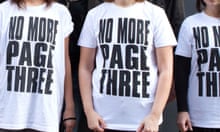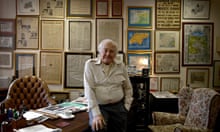A self-confessed paedophile is to out himself in a Channel 4 documentary to ask for more help for people sexually attracted to children in a bid to stop them becoming criminals.
The Paedophile Next Door will feature 39-year-old Eddie admitting openly on camera that he has been sexually attracted to girls as young as four since he was in his 20s, but insisting has never committed a crime.
The programme looks at so-called “virtuous paedophiles” and suggests radical changes are needed to child protection that include treatment and therapy for those who come forward, despite never having committed any sex offences.
The programme, to be broadcast on Channel 4 on Tuesday night, also sees Eddie meet Ian McFadyen, 49, who was abused by a schoolteacher as a young boy.
Eddie, who tells the programme that he is also attracted to adult women, says he has never abused children and does not plan to.
He tells documentary maker Steve Humphries: “People will probably say ‘Why isn’t this guy locked up? We should kill this guy, we should go and give him a good shoeing’.
“I, honest to God, won’t run away from you and if that is what you want to do to me, you come and do it, because all you are doing in that scenario is just keeping the status quo.
“Going around abusing children is not acceptable, viewing images of child pornography is not acceptable, but people are just waiting for you to offend before they help you.
“They are saying: ‘Do what you want but if we catch you we are going to bang you up’, instead of saying perhaps ‘Listen, we can help you’.
“But if you don’t have that help, [and] you don’t have that option to come forward and say ‘Look, I have got a problem, I need help’, what are we changing? We are changing nothing.”
Eddie tells the documentary he realised he was a paedophile after using pornography, adding: “When I began to realise the implications of what I had been looking at, I began to really question myself and I was genuinely distressed and worried.”
He adds that this was at the time in 2000 when eight-year-old Sarah Payne was murdered by Roy Whiting and there was “hysteria that every paedophile is a rapist and everyone is making that jump”.
He tells the programme: “I thought I was a bad person. I thought somewhere along the line I’m going to do something.
“At that time I honestly was just thinking more and more about suicide. I couldn’t escape it, it was never far from my mind.”
Channel 4 is not releasing any other details of Eddie’s identity, apart from saying he had a normal upbringing, was popular at school and was captain of the rugby team.
He does not have a family and is receiving treatment in Europe, the film-makers said.
The documentary shows him writing a letter to his mother admitting he is a paedophile so she does not find out from watching.
Several experts in the documentary call for the UK to set up a similar scheme to Germany’s Prevention Project Dunkelfeld (PPD) which treats people who admit they are sexually-attracted to children to help them live safely in society.
They claim research shows that as many as one in 50 men could be sexually attracted to children to some degree and the only resource they have at the moment is other paedophiles, including those who have committed crimes, in online communities for minor attracted persons.
McFadyen was abused at school in the 1970s and became a drug addict and child prostitute. In the documentary he tells Eddie: “Eighteen years ago I was quite violent, I would probably have attempted to kill you.”
Speaking at a screening of the documentary in London on Monday, McFadyen admitted that the documentary may not be popular with child sex abuse victims, who feel they do not get enough support themselves. But he said current practices are “antiquated”.
He said: “The only reason I agreed to get involved in this was that we can look at this as being potentially another option towards being proactive.
“This is about stopping the abuse actually happening.
“It is not a comfortable subject, I don’t want to sit with paedophiles, I don’t advocate for paedophiles, I feel wholly uncomfortable with them, but … the damage is done to me and my generation. What I don’t want is that to keep occurring because we won’t look at new ways and sit down with the offenders before they offend.”
To contact the MediaGuardian news desk email media@theguardian.com or phone 020 3353 3857. For all other inquiries please call the main Guardian switchboard on 020 3353 2000. If you are writing a comment for publication, please mark clearly “for publication”.







